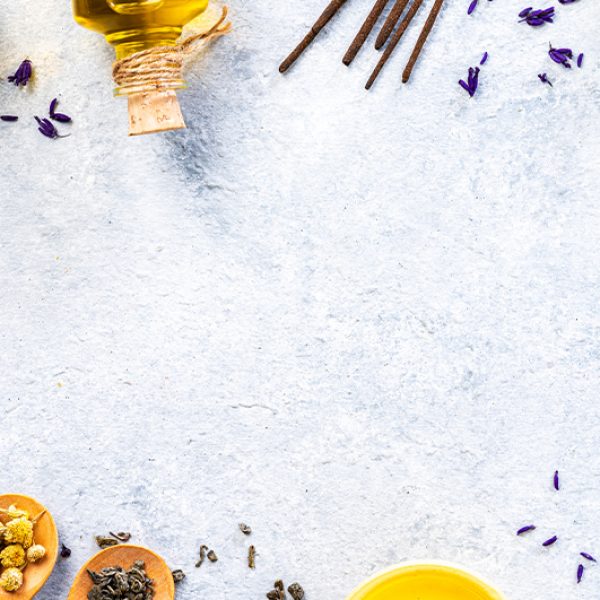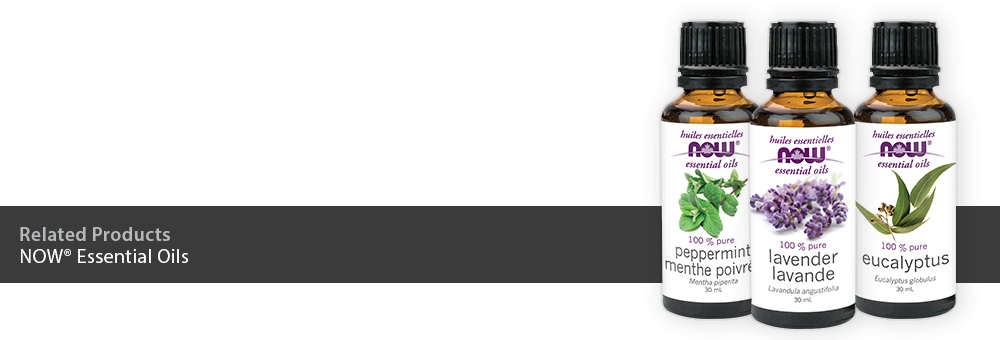

Your Guide to Essential Oils
If you stop to smell the roses, you are experiencing a particular combination of unique chemicals called essential oils. Those chemicals can be extracted and concentrated into what consumers call essential oils. Essential oils can be found in all plant parts including the bark, leaves, flowers and roots. The word “essential” refers to our experience of plant aromas which are considered to be the “essence” or soul of the plant. The oil refers to the volatile component extracted from plants. Since they are volatile, they easily evaporate into the atmosphere allowing for the wonderful experience of aromatherapy.
How we experience essential oils
The array of potential therapeutic effects of essential oils is a reflection of the multiple points of entry and impact. When we inhale them, they make their way directly to a primitive part of our brain responsible for emotions and memories as well as to our lung tissues and from there into our blood streams. We also absorb essential oils through our skin and mucous membranes and ingest them as is the case with peppermint candy cane. For centuries essential oils have been used to treat inflammation, insomnia, stress, skin diseases, pain, infections, headaches and the list goes on.
Safety of essential oils
It takes approximately 75 lemons to make just one small 15ml bottle of lemon essential oil. Such highly concentrated extracts are not found in nature and therefore must be treated with care and respect. Never apply essential oils without diluting them. A 1-3% dilution (6-18 drops in 30 ml bottle of carrier oil) is generally safe for an adult body below the neck. My carrier oils of choice are either fractionated coconut oil or jojoba (which has a great self-life). When diffusing essential oils around small animals and babies make sure the area is well ventilated area.
Ingesting essential oils
If you have every used natural toothpaste or eaten commercially prepared foods, you have likely ingested a variety of essential oils. While certain essential oils are safe to consume this does not mean you can simply drop them in water and swallow them. Essential oils that are edible must still be safely diluted and dispersed. Since they are NOT soluble in water (they don’t mix) this is not a safe medium for consumption. Make sure you are working with a professional with knowledge and experience before attempting to make your own ingestible goods.
Essential oil quality
NOW® Essential Oils are highly tested for quality and purity using internationally recognized methods and tests which are transparently published on their website. While the term “therapeutic grade” is often tossed around some circles, this is a marketing term and has not official meaning. The term “pure” on a bottle typically means not diluted with a carrier oil and has no official meaning or guarantee of lack of “impurities.”
Enjoying essential oils
The plethora of uses for essential oils is mind boggling. You can diffuse them (a great way to wake up, focus, or wind down), soak in them, apply them topically, add them to homemade body care and cleaning products, make a potty spritz, bath bombs, body scrubs, and more!
- Recipes: https://www.nowfoods.com/essential-oils/recipes
- NOW quality testing: https://www.nowfoods.ca/now/nowledge/essential-oil-identity-purity-testing
- Dilution Infographic & calculator: https://www.nowfoods.ca/now/nowledge/diluting-essential-oils
- Essential Oil Attributes chart: https://www.nowfoods.ca/sites/default/files/essential-oil-attributes-chart.pdf
- NOW Quality: https://www.nowfoods.ca/now/nowledge/essential-oil-identity-purity-testing
- NOW Quality/Safety: https://www.nowfoods.ca/now/nowledge/safety-data-sheets-essential-oils
- Essential oil Safety for Children: https://www.nowfoods.ca/now/nowledge/faqs-regarding-use-essential-oils-children
- Essential oil quality issues: https://www.nowfoods.ca/now/nowledge/we-tested-other-brands-exercise-caution-when-buying-essential-oils
- Food Grade: https://www.nowfoods.ca/now/nowledge/food-grade-essential-oil-faqs
Thalia Charney, MA, Holistic Nutrition and Wellness Coach
Nutrition and Health Education Manager, NOW Foods

